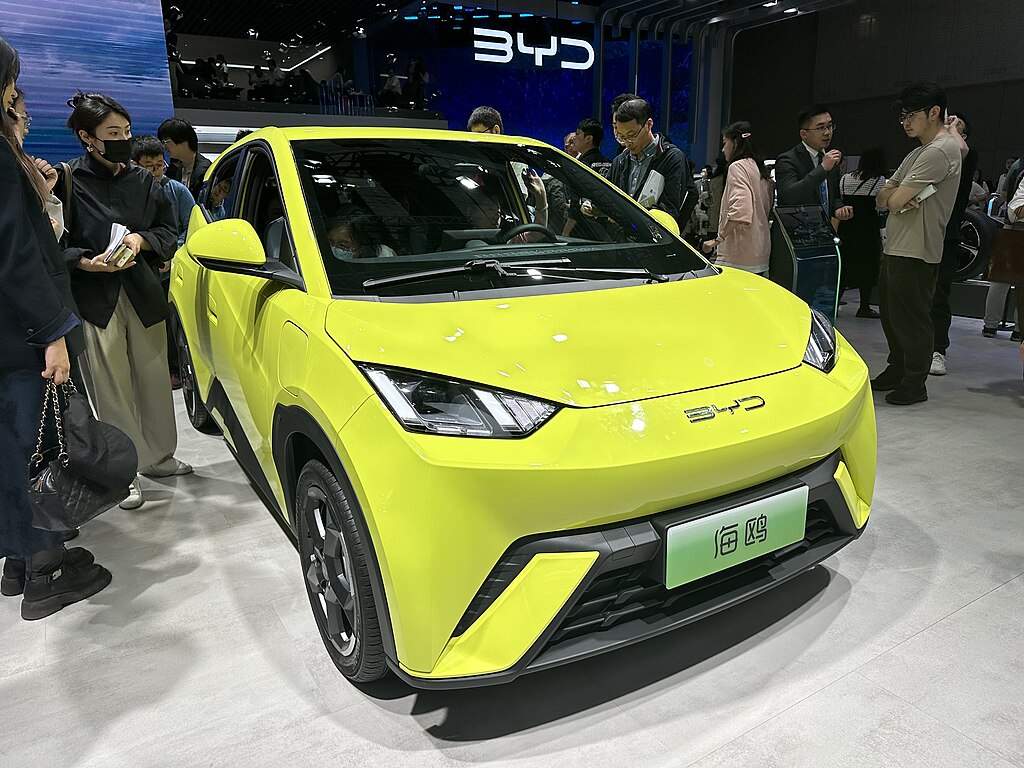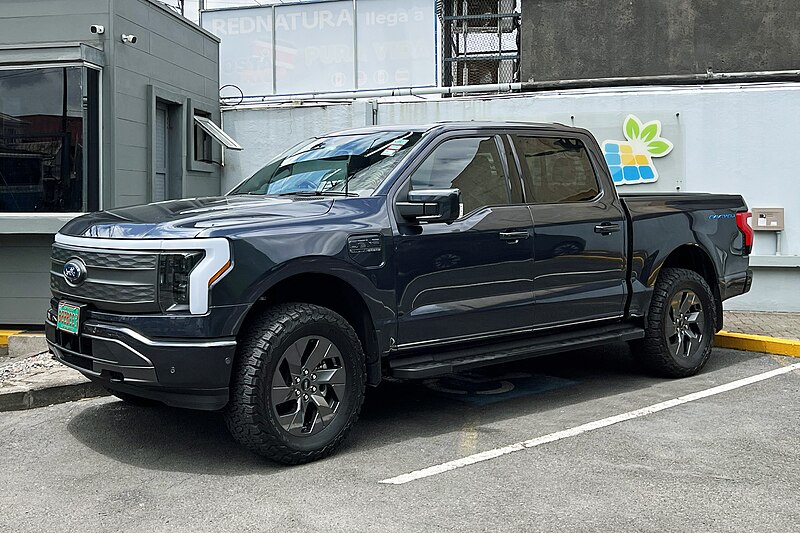Will Low-Priced Chinese EVs Demolish Competitors?
So far, China has yet to enter the American EV market in significant numbers. However, that may change. The multitude of Toyota, Honda, Mitsubishi, Nissan, Kia, Hyundai, and other brands currently on American roads proves Americans are open to purchasing foreign-made vehicles from Japan and Korea. China’s light vehicle (LV) production total has ranked first in the world for fourteen years, and was expected to account for 32% of the global total in 2023. Will American drivers buy Chinese electric vehicles (EVs)? The question brings up many political and economic issues. Opinions on the subject vary widely.
The End of the ICE Age: Rise of the Chinese NEV
In July 2023, an interview with Bill Russo, Founder and CEO of Automobility Limited, a Shanghai, China-based strategy and investment advisory firm, was published in AMCHAM’s Insight Magazine. The American Chamber of Commerce in Shanghai (AMCHAM) is known as the “Voice of American Business” in China.
Russo made some statements revealing astounding insight in his interview with AMCHAM, “The End of the ICE Age: Rise of the Chinese NEV.” Russo attended the Shanghai Automobile Show in 2023, and he gained many insights through experiences at the show.
Russo said about the global EV industry: “Chinese companies in the EV era are leading development and innovation.” For example, China was the first in the world to produce a sodium-ion-powered EV in December 2023. The innovative EV was produced by Volkswagen-backed Yiwei, a new Chinese electric vehicle (EV) brand under the JAC Group. The global demand for sodium-ion EV batteries is growing fast. BYD’s construction of a new sodium-ion EV battery plant in China is strong evidence of this.
Foreign OEMs Have Gone From Being More Than 60% of the Chinese Market in 2020 to Now Less Than Half
When speaking about American and European automakers selling in the Chinese market, Russo said, “Foreign companies have, in the span of the pandemic, lost the edge. They’ve gone from being more than 60% of the market in 2020 to now less than half.” Russo continued, “Alarm bells are going off. China as a market is too big to fail in, especially if you’re a European company.”
Russo mentioned the difficulty American and European automakers have with success in making and selling EVs. Part of the problem is they’re trying to adapt their gas-powered, internal combustion engine (ICE) production to EVs, while EV-only companies are building EVs from the ground up and don’t have this problem. Russo said: “Until now, the proposals about EVs that have gone to boards have a lower net present value [than ICE] because they have higher costs and lower volume with lower unit margins,” highlighting how American companies such as Ford who cut EV production at the end of 2023, and again in 2024, are struggling with making them profitable.
BYD, New Leader of the Global EV Market
BYD, a wildly successful Chinese automaker, has seemingly discovered a groundbreaking solution for manufacturing low-cost electric vehicles that possess potential for global appeal. One of their latest models, the BYD Seagull, is a compact EV with a starting price of approximately $11,400. Even considering America’s current 27.5% import tariff on Chinese vehicles, the BYD Seagull would still dramatically undercut U.S. EV prices, coming in at less than $15,000. This competitive pricing strategy could significantly impact the American EV market, making electric cars more accessible to a broader consumer base.

Automotive experts have notably highlighted BYD Co., a company backed by the Beijing government, as a remarkable illustration of China’s emerging dominance in the automotive industry. Last year, this firm impressively surpassed the leading American electric vehicle maker, to become the leading global seller of EVs. The Chinese company sold a record number of cars in 2023, including 525,409 battery electric vehicles (BEVs) in the three months leading up to December 31, evidenced by a stock exchange filing. Such a feat underscores China’s growing influence in the global EV market.
U.S. Behind Other Countries in EV Production, Especially China
There are many reasons why China is leading the global production of EVs, far surpassing the U.S. It’s important to note that BYD’s success in offering low-cost EVs is not entirely derived from manufacturing innovations alone. According to estimates by Rhodium Group, mentioned in The Economist, BYD received approximately $4.3 billion in state support between 2015 and 2020. Furthermore, Beijing has implemented policies to incentivize buyers of electric cars, including offering subsidies. This financial backing and government support have been instrumental in enabling BYD to price their electric vehicles competitively.
North American EV Market Growing Substantially in 2024, China Will Reach 40%
In 2024, the North American EV market is expected to grow at an extremely high rate, 26.8%, according to research firm Canalys. However, the U.S. will have the lowest EV penetration rate of 12.5% compared with Greater China and Europe, the research firm said. EV penetration in China is expected to reach 40%, with Chinese brands comprising 78% of the domestic Chinese market share. A drop in lithium-ion battery costs, as well as leadership in EV battery production, drives sales of electric vehicles in China.
American Companies Cutting EV Production
In January 2024, Ford announced a reduction in production of its F-150 Lightning pickup truck in response to a lower-than-expected demand for electric vehicles in America. This is surprising, given that Ford sold a record 25,937 electric vehicles in Q4 2023, achieving a 24% increase over Q3 sales and an 18% increase to 72,608 EVs for 2023. General Motors postponed the opening of a $4 billion electric truck plant in Michigan for a year last October. Both of these iconic American automakers and others are struggling with making EV production profitable.

U.S. EV Adoption Still Has Significant Barriers, Including High Prices, In Spite of Growing Fast
The main problem with EV adoption in America is that the early adopters have purchased EVs already. The U.S. is now in the early majority segment of EV adoption, a much more pragmatic, price-conscious, and tougher audience to sell EVs to. Another barrier, perhaps the most important one, is that EVs are still priced higher than internal combustion engine (ICE) vehicles. As of December 2023, the average selling price for a new car (EV or ICE) was $48,759, according to Kelley Blue Book. KBB listed the average new electric car price as $50,798 in December. New EV prices are falling but not quite below ICE prices yet. China and other countries successful with EV adoption have proven that price is a main driver. Would you rather pay $15,000 or $50,798 for a new EV?
Few Chinese EVs Available in America
Despite the sensational advancements in the Chinese auto industry and the global appeal of their inexpensive electric vehicles (EVs), no Chinese auto company has yet succeeded in selling vehicles under their own brand in the U.S market. That being said, China’s presence in the U.S. automotive landscape is not negligible. It maintains substantial supply chain ties and operates a handful of auto brands owned by Chinese companies in the U.S. These include Lotus, Volvo (along with its Polestar spin-off), and niche EV manufacturer Karma.
American auto giants such as General Motors (GM) and Ford already manufacture or plan to manufacture, various models in China for importation and subsequent sale in the U.S. The GM Buick Envision is a notable example of a vehicle imported from China to the U.S. Moreover, last year, Ford announced plans to import its upcoming Lincoln Nautilus crossover from China. However, as it stands, U.S. drivers are unable to purchase a Dongfeng, BYD, or any other vehicle manufactured by a Chinese company in the U.S. market.
Stellantis, GM, Ford, Others Very Worried About Low-Priced Chinese EVs
Stellantis is also worried about low-priced Chinese EVs. Stellantis designs, manufactures, and sells automobiles with 14 brands: Abarth, Alfa Romeo, Chrysler, Citroën, Dodge, DS, Fiat, Jeep, Lancia, Maserati, Opel, Peugeot, Ram, and Vauxhall. “My No. 1 competitor is the Chinese carmakers,” said Carlos Tavares, CEO of Stellantis, during a recent media roundtable. “This is going to be a big fight. There is no other way for a global carmaker like Stellantis that is operating all over the world than to go head-on with the Chinese carmakers. There is no other way.”
Will Low-Priced Chinese EVs Demolish Competitors in America?
Many American consumers would rather pay $15,000 than $50,798 for a new EV. However, analysts don’t believe China will enter the U.S. EV market anytime soon. If it did happen, it would have to be done in a long-term, phased-in way, to prevent shock and serious financial harm to American OEMs and the American business sector. Chinese labor wages, much lower than U.S. labor wages, are a major reason for the low prices. Perhaps Chinese companies could be invited to open manufacturing plants in the U.S., if relations were to improve. Doing this would create American jobs and stimulate the American economy. This would raise the prices of the American-produced Chinese EVs, but by how much, is unclear at this point. Will the BYD Seagull and other Chinese EVs be seen on American roads in large numbers? Only time will tell.

Electric Vehicle Marketing Consultant, Writer and Editor. Publisher EVinfo.net.
Services